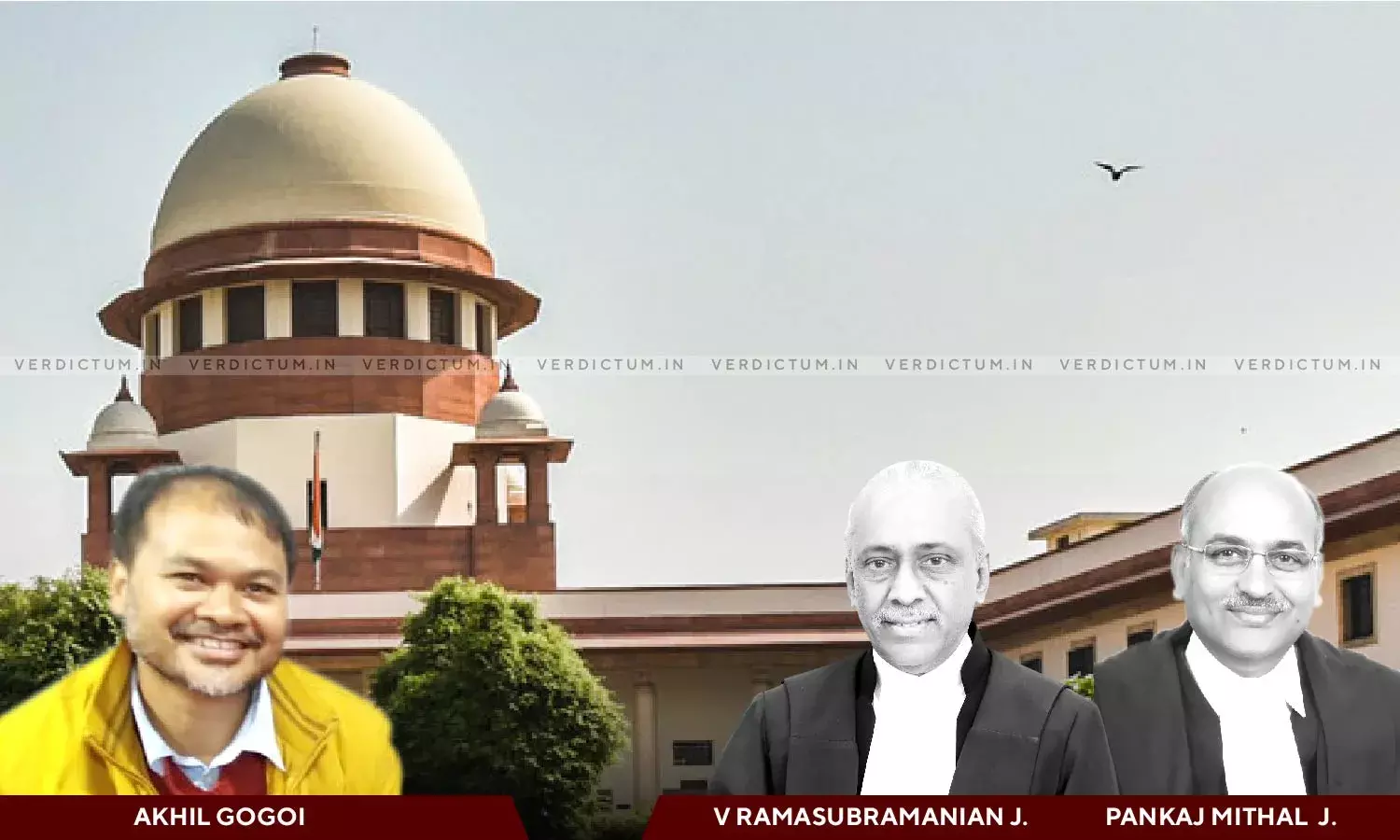Dismissal Of Bail Application Pending Investigation Is No Ground To Reject Prayer For Protection Against Arrest: SC While Granting Bail To Akhil Gogoi
Finding that the present one is not a case where the petitioner should be allowed to be detained in custody, especially after having secured an order of discharge, rightly or wrongly, the Supreme Court held that except in cases of preventive detention, the purpose of detaining a person in police/judicial custody is either to facilitate fair and proper investigation or as a measure of penalty after conviction.
The Two Judge Bench of Justice V. Ramasubramanian and Justice Pankaj Mithal observed that no purpose will be served in allowing the Special Court to remand the Petitioner to custody and then enabling him to move an application for bail, since the investigation was over and the petitioner is not yet a convicted criminal.
"Therefore, the dismissal of the application for bail at the time when investigation was pending, is no ground to reject the prayer for protection against arrest", added the Bench.
Senior Advocate Huzefa Ahmadi & AOR Sahil Tagotra appeared for the Petitioner and Solicitor General Tushar Mehta & AOR Aishwarya Bhati appeared for the Respondents.
Going by the background of the case, one FIR was registered against the petitioner and three others for offences punishable under Sections 120B, 124A, 153A and 153B of the Indian Penal Code, 1860 read with Sections 18 and 39 of The Unlawful Activities (Prevention) Act, 1967. Resultantly, NIA took over the investigation and the petitioner was arrested.
When the application for bail filed by the petitioner was rejected by the Special Court, the petitioner challenged it before the High Court, but proved unsuccessful. However, by later order, the Special Court discharged the petitioner. This discharge order was challenged by the National Investigative Agency (NIA) before the High Court of Gauhati, and was allowed. Hence, present SLP.
After considering the submissions, the Supreme Court found that the offences under the Indian Penal Code alleged against the petitioner are punishable only with imprisonment for a period of upto three years, and it is only the offences alleged under the Unlawful Activities (Prevention) Act, which are punishable with larger terms of imprisonment.
If the offences under the IPC alone are considered, the petitioner has served, as an undertrial prisoner, more than half of the maximum period prescribed under the relevant provisions, added the Apex Court.
The Court accepted that the petitioner has suffered incarceration for about 567 days and he has been out as a free man for the past more than 21 months.
“It is important to note that his freedom was secured not by an order of bail, but by an order of discharge passed by the Special Court, which has now been reversed by the High Court. Nothing has been brought on record to show that during this period of 21 months, when the petitioner has been a free man, he has indulged in any unlawful activity. On the contrary, the petitioner got elected to the Legislative Assembly in the year 2021 and he is now a sitting member of the Assembly”, added the Bench.
Accordingly, the Supreme Court opined that the petitioner is entitled to be protected against arrest and detention in connection with the FIR in Chanmari Case No.1688/2019, re-registered as RC-13/2019/NIA-GUW [KMSSCPI(Maoist)] by the NIA, and therefore directed the release of the petitioner on bail, pending trial, subject to such terms and conditions as may be imposed by the Special Court (NIA) Guwahati.
Cause title: Akhil Gogoi v. State (National Investigation Agency) and Ors.



